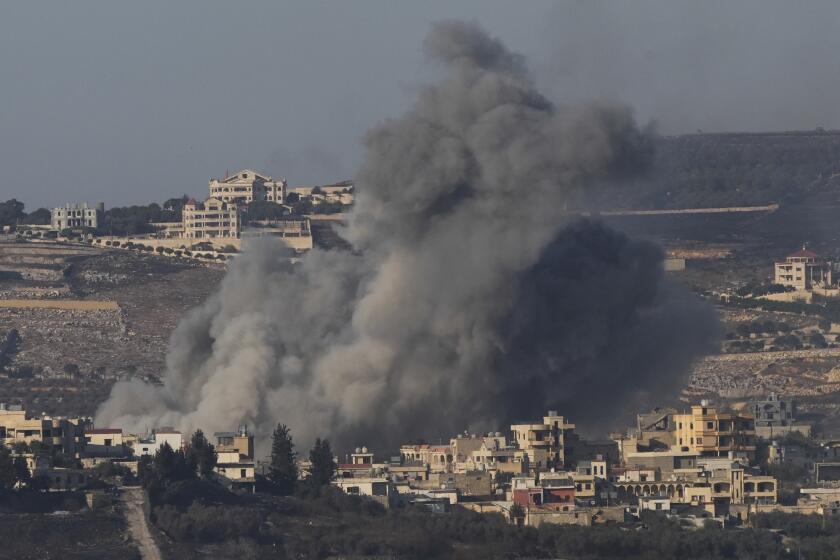Emperor Akihito Backs Debate on Monarchy or Hirohito’s War Role
Emperor Akihito on Friday defended the right of the Japanese people to debate the emperor system and the question of his late father’s responsibility for World War II.
Akihito, 55, spoke out at his first news conference since assuming the throne after his father, Hirohito, died Jan. 7.
Asked about the furor created by foreign critics and some Japanese, among them Nagasaki Mayor Hitoshi Motoshima, in charging that Hirohito bore responsibility for Japan’s wartime aggression, Akihito replied:
“Upholding freedom of expression is the foundation of democracy, and I believe it is very important to defend it.”
Freedom of Debate
When a Japanese reporter asked if freedom of expression includes the freedom to debate the emperor system and the question of his father’s responsibility for the war, Akihito replied: “Yes, it includes those points.”
Until the end of World War II, any questioning of the emperor system was considered treasonous. And until Hirohito fell ill with cancer last September, criticizing the monarchy or suggesting that Hirohito might be responsible for Japanese aggression had been treated as taboos.
Akihito refused, however, to offer his own opinion about his father’s responsibility for the war.
“I am not in a position to comment about that,” he said.
On two occasions, in 1971 and 1975, Hirohito told foreign correspondents that he had always acted as a constitutional monarch, both in war and peace, in accordance with the wishes of his grandfather, Emperor Meiji, who ruled between 1868 and 1912.
Personally Knew Few Details
He said the military authorities reported their war plans to him “only after everything, down to the most minute detail, had been decided. . . . The things I knew personally were very few.”
Akihito said he believes that his father “thought peace was very important (and) tried to obey the constitution and act in accordance with it. I presume that he experienced a great deal of trouble.”
Japan, he said, is now “treading the path of a nation of peace under the new constitution, and I sincerely pray that the day when peace shall prevail throughout the world will come quickly.” As his father often did, Akihito declared that the thought of “the many people at home and abroad who lost their lives and endured suffering (in the war) . . . pains my heart.”
Akihito reiterated a declaration he made on assuming the throne that he would, “together with the people, work to uphold” Japan’s postwar constitution. Under it, the emperor is limited to serving as “a symbol of the state and the unity of the people.” The prewar constitution invested sovereignty in the person of the emperor.
Empress Michiko, 54, answered eight questions, far more than the Dowager Empress Nagako did when she attended the three news conferences that Hirohito gave in his 62 years as emperor.
Expressing traditional homemakers’ values, Michiko said, “As His Majesty, from now on, will bear even heavier responsibilities than before, I would like to keep the home a place where he can be refreshed from the fatigue of daily duties and find peace and relaxation with his family.”
They were asked if the Imperial Family could not promote Japan’s “internationalization” by using foreign-made cars, wearing foreign-made clothing, eating foreign-grown rice and perhaps permitting their son, Crown Prince Hiro, 29, to marry a foreigner. But neither expressed any enthusiasm for this sort of thing.
They both said they support the “spiritual internationalization” of Japan. “Most important,” Akihito said, “is to try to understand the hearts and minds of foreign people and respect them as human beings.”
The traditionally rigid Imperial Household Agency required the 55 foreign and Japanese reporters who attended to submit questions in advance. To permit censorship of any part of the session, the agency also refused to allow the news conference to be televised live.
But as it turned out, reporters were able to ask questions spontaneously as well, and the agency allowed the entire session to be aired on videotape with no editing.
More to Read
Sign up for Essential California
The most important California stories and recommendations in your inbox every morning.
You may occasionally receive promotional content from the Los Angeles Times.










